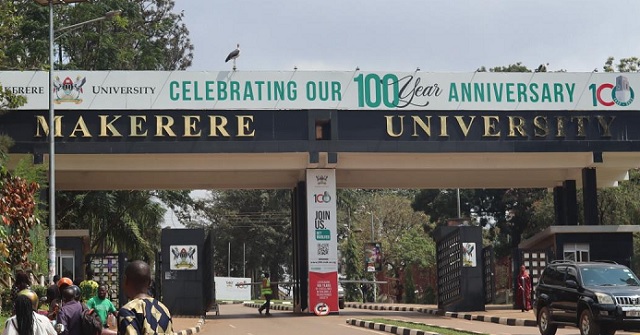
Kampala, Uganda | THE INDEPENDENT | In light of the ongoing holiday season, universities are cautioning parents and students about a surge in online short-course scams. With the popularity of online learning surging amid the COVID-19 pandemic, fraudulent schemes have emerged, targeting unsuspecting individuals.
Scams have surfaced on Facebook and other social media platforms, advertising courses falsely claiming to be offered by reputable institutions of higher learning like Makerere University, Uganda Christian University, and Uganda Martyrs University.
With the promise of free courses, using links embellished with official university logos. One particularly noteworthy example comes from a Facebook page called “Free Course” and Gold Service. These specific scams take it a step further by tempting prospective participants with the offer of free laptops upon enrollment.
“Free certificate courses available online, laptop provided and certificate included!” declares the post adorned with a university logo. The post showcases enticing options like “View Course” and “Apply,” but upon tapping, users are redirected to the website http://freecourses22.online. Upon accessing the site, it expands to reveal six additional choices, featuring options like “Free Online Course with Certificate,” “Free Online University Degree,” “Online Courses,” and “Training Courses,” among others.
Notably, there’s a lack of links to the official websites of the universities featured on the social media page. Clicking on any of the links leads to further pages, all interconnected and focused on promoting various free online courses. Universities whose logos and names have been falsely associated with the mentioned courses are now actively distancing themselves from the scam.
They are urging vigilance among the public, emphasizing the crucial need to verify the authenticity of online courses before enrolling. These clear and direct warnings aim to protect people from falling victim to such scams, ensuring a secure and genuine learning experience for all. Ritah Namisango, the Principal Public Relations Officer at Makerere University, advises parents against relying on information obtained from unofficial online sources to prevent falling victim to scams.
“Makerere adversities using its official channels such as the university website and Makerere university on x handle,” said Namisango in an interview with our reporter. Similarly, Uganda Christian University (UCU) has distanced itself from the advertisements and widely circulated links promoting free online courses. Jimmy Siyasa, the UCU Communication Officer, mentioned that the university has already issued a notice warning the public about this scam.
Numerous studies on this issue, conducted in different countries grappling with the same problem, highlight the perilous nature of even clicking on seemingly innocuous links. Such actions can potentially open a gateway to viruses on devices, setting the stage for phishing attacks that compromise personal information and may ultimately lead to cyber theft, especially for individuals who utilize their devices for financial transactions.
To safeguard against scams, individuals are consistently advised to maintain a high level of vigilance and be attuned to key indicators of fraudulent activities. These indicators include unrealistic promises, a lack of contact information, requests for personal information, unusual URLs, subpar website design, and offers that seem too good to be true.
*****
URN
 The Independent Uganda: You get the Truth we Pay the Price
The Independent Uganda: You get the Truth we Pay the Price




A little work here brings big dividends in the future.